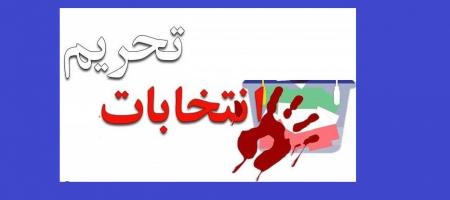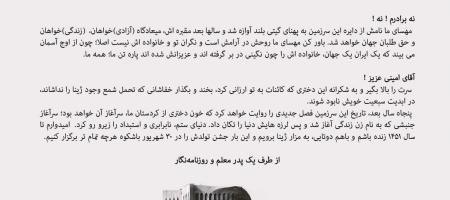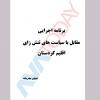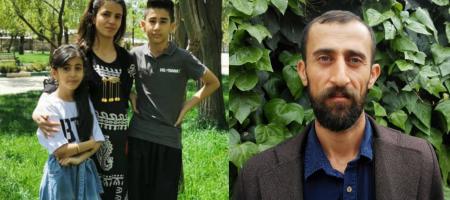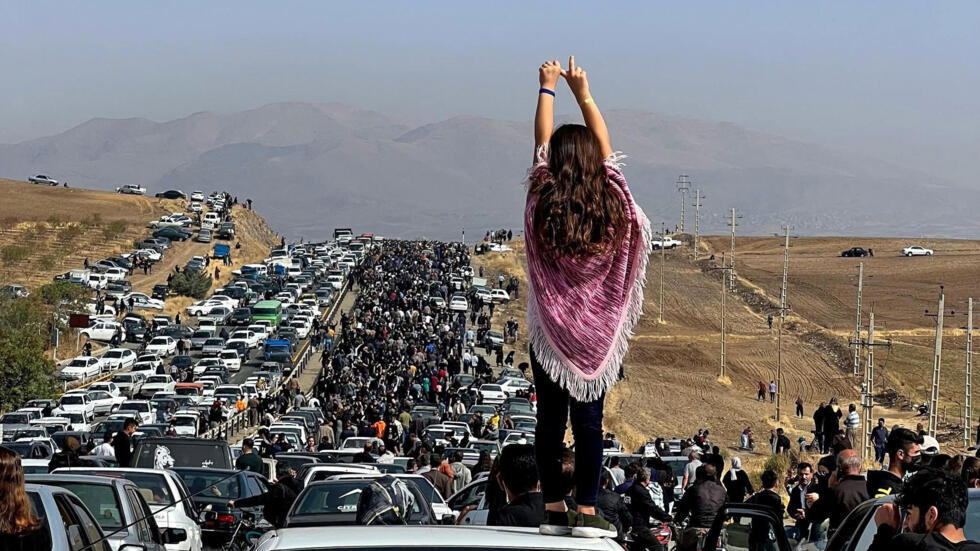
Iran marked two years after the “Woman, Life, Freedom” uprising on Wednesday, with rights organization Amnesty International issuing a statement commemorating the anniversary and highlighting human rights abuses that have occurred in the protests’ aftermath.
The “Woman, Life, Freedom” protests began as a response to police brutality against women after Mahsa Jina Amini, a 22-year-old woman of Kurdish origin, was arrested by guidance police for incorrectly covering her hair. She was mistreated and eventually fell into a coma in police custody. She died in hospital three days later.
A police crackdown on the protests led to the arrest, injury and death of people including children, human rights activists and civil society figures. Due to the repression, the Human Rights Council of the UN passed a resolution establishing an independent fact-finding mission to investigate the state of human rights violations in Iran. Through this resolution, the council urged Iran to cooperate fully with the fact-finding mission and to allow access into the country and to relevant information.
The report of the fact-finding mission revealed that there was use of arbitrary lethal force on protesters, killing some and injuring numerous others. Thousands were also arrested and detained in relation to the protests, with the average age of those arrested being 15. Despite the fact that the state pardoned around 22,000 protesters, 28 individuals were sentenced to death. Moreover, the report stated that women were subjected to sexual assault by security forces who justified their actions on the basis that this was “the freedom [women] wanted.” The result of this was a women’s rebellion against the hijab law that makes the wearing of a headscarf in public compulsory for all women, including non-Muslims and foreigners.
The UN recommended the repeal or amendment of the hijab law and the disbanding of the guidance police force in its concluding observations on the fourth report on Iran in November 2023. It also recommended the establishment of an independent national human rights institution in accordance with the Paris Principles. It urged Iran to ensure that its legal framework provides full and effective protection against discrimination in all spheres, pursuant to the International Covenant on Civil and Political Rights.
Following the protests and due to pressure from the international community, the patrols of the guidance police in the streets of Iran ceased, but only for a short period.
According to Amnesty International, there continues to be abuse of human rights by the police two years after the “Woman, Life, Freedom” protests. The organization notes that international organizations have not conducted investigations into the police’s actions. It also relays that the police have silenced the relatives of the victims through arbitrary arrest and detention, death threats, harassment and unjust prosecution. Amnesty reported that such violations constitute crimes under international law.
The organization called upon states to invoke universal jurisdiction, carry out investigations of the crimes that were committed during the uprising and take necessary action.

